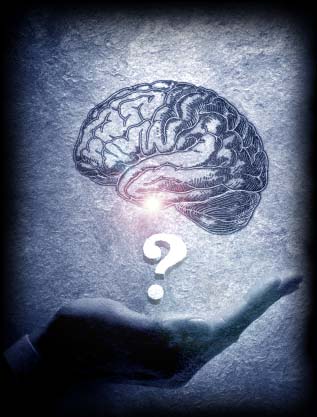Psychology as a science

В статье приводятся аргументы
за и против признания психологии наукой
Psychology is often defined as the "science of
behavior and experience” (Cardwell and Flanagan 260). However the claim that
psychology is a science can still be disputed. Some people claim that psychology
does not "bear scientific fruit. Each field based in science has to be able to
show results, both as public validation of its theories and methods and as a
form of internal evidence” (Lutus) Psychology is based on empirical approach.
It claims that our senses are the source of knowledge, as opposed to rationalism
("Is Psychology a Science?”).
In order to determine whether psychology is a
science or not, it is necessary to define a ‘science’ itself. A science is
‘objectively obtaining data and organizing it into theories’ ("Is Psychology a
Science”). Science usually follows some process when something scientific is
investigated. When an investigator is studying something, he usually studies
the subject’s idea. That is called inductive reasoning. Then, the subject
matter is always generalized and then a hypothesis is stated. When the subject
matter is studied, generalized and tested, deductive reasoning is usually used.
It can be either falsified or verified. Science is supposed to be objective and
deal with testable variables.
Objectivity is of major importance. Psychology
needs to be objective in order to be classified as a science. It means that no
biased ideas are imposed by researchers. Any researcher should not make
conclusions on what he believes, but on facts. Sometimes, this objectivity
exists. This is true about biological, behaviorist and cognitive theorists.
While investigating their theories they usually use laboratory studies. The
reason to that is that their theories are usually controlled and thus, they are
unbiased by the personal researchers’ beliefs. Still, psychodynamic theorists
differ from them. They usually use case studies in the process of investigation
of the subject matter. Thus the results are usually generalized and their
interpretation is biased. The main idea of this argument is that the issue of
whether a method is objective or not depends on psychological investigation
that is carried out.
The second argument, as well as the first one,
can also be used either for or against psychology as a science. It concerns the
process of operational variables. Sometimes, they are already established, as
in physics or chemistry – grams, voltage or amps. They are easily
established. But unfortunately
psychologists cannot establish such variables when they investigate something. Thus,
if they study someone who is sweating and they make a conclusion that it is a
sign of stress, there are not enough justifications to prove that sweat is a
direct variable of the stressful situation. So, it is difficult to judge
whether psychology is a science, as causality is not established.
The third argument is causality. It presupposes
cause and effect relations. There are sciences, in which these relations are
observed very vividly. As a rule, these sciences ground their conclusions on
the basis of laboratory experiments. They are usually controlled and thus
demonstrate cause and effect relations.
Of course, to some extent, psychology also
establishes causality sometimes. Laboratory experiments are used very often in
cognitive, behavioral and biological approaches. The highly controlled
conditions can establish a good ground for causality. But psychodynamic
theorists usually use case studies in the process of investigation. So, some
problems are raised when laboratory experiments are applied when it is
necessary to investigate psychological phenomena. The problem is that
laboratory experiments usually lack such important feature as ecological
validity that is not applied to real life. Besides, experiments may demand
various characteristics. The experimental validity may be also absent in this
case, as sometimes a participant has no confidence in the experiment.
The fourth argument, which is also the final
one, is the use of theory by psychology. All major sciences usually have
various paradigms. These paradigms are general theories that usually embrace
numerous small theories. Thus, physics, for example, has relativity theory.
Unfortunately, psychology has nothing of this kind. Instead of this, psychology
has several levels of explanations that can explain and characterize different
phenomena. Probably, that is the reason why psychology is considered by some
scientists not yet a science, but some theory approaching it. It means that
psychology has all the potential to be called and recognized a science one day,
but now it has not yet reached its limit. There is another problem of
paradigms: the fact that they are changed very often makes us think that
psychology as a science does not necessarily need paradigms. Having all those
sufficient levels of explanation, it already seems to be sufficient enough
without paradigms.
To sum it up, there are arguments both for and
against psychology as a science. If to examine the definition of psychology
given in the very beginning - ‘objectively obtaining data and organizing it into
theories’ – it seems fair to admit, that psychology is a science with its own
apparatus for investigating.
|  Главная
Главная  Наши работы
Наши работы Мой профиль
Мой профиль Регистрация
Регистрация Выход
Выход Вход
Вход